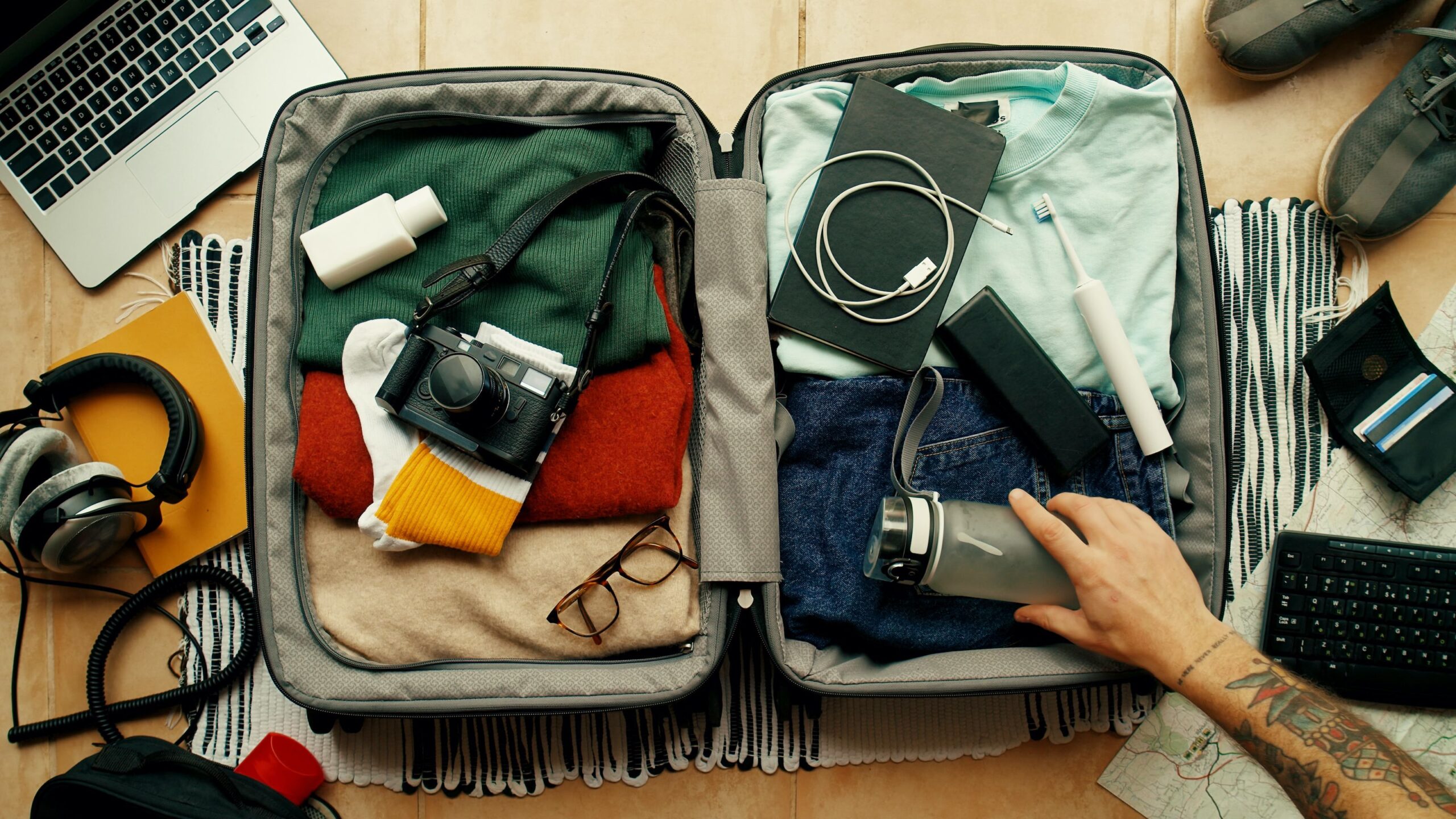Eco-travel is more than just a trend; it’s a commitment to preserving the environment and supporting sustainable practices while exploring the world. Being a responsible tourist starts with how you pack. This guide will help you make eco-friendly choices and reduce your carbon footprint during your travels.
Why Eco-Friendly Packing Matters
Before diving into the specifics, it’s important to understand why eco-friendly packing is crucial. Every travel decision you make, from the items you pack to the way you dispose of waste, impacts the environment. By choosing sustainable practices, you can help protect natural resources, reduce waste, and support local communities.
Sustainable Packing Tips
Choose Eco-Friendly Luggage
When selecting your travel bag, opt for sustainable luggage made from recycled or natural materials. Brands like Patagonia, Samsonite Eco-Nu, and EcoGear offer durable and stylish options that are kinder to the planet.
Pack Light
Packing light is a fundamental principle of eco-travel. The heavier your luggage, the more fuel transportation requires, increasing carbon emissions. Aim to pack only what you need and prioritize multi-purpose items.
Use Reusable Containers
Eliminate single-use plastics by using reusable containers for toiletries, snacks, and drinks. Invest in a good set of silicone travel bottles, a stainless steel water bottle, and beeswax wraps for food storage.

Choose Sustainable Clothing
Opt for clothing made from organic or recycled materials. Companies like Patagonia, Toad&Co, and Tentree offer eco-friendly clothing lines. Pack versatile pieces that can be layered and worn in various combinations to minimize the number of items you need.
Eco-Friendly Toiletries
Switch to biodegradable toiletries and solid versions of products like shampoo, conditioner, and soap. Solid toiletries often come in minimal or plastic-free packaging and are more travel-friendly.
Minimize Electronic Use
While electronics are essential, try to limit the number you bring. Consider multi-functional devices, such as a smartphone that can double as a camera and e-reader. Don’t forget to pack solar chargers to reduce your reliance on electricity.
Bring Your Own Shopping Bag
A foldable reusable shopping bag is a must-have for eco-travel. It comes in handy for shopping, carrying laundry, or beach trips, reducing the need for plastic bags.
Reducing Waste on the Go
Avoid Single-Use Plastics
Single-use plastics are a major environmental issue. Avoid items like plastic straws, cutlery, and cups by carrying your own reusable alternatives. Bamboo cutlery sets and metal straws are lightweight and easy to pack.
Dispose of Waste Responsibly
Always dispose of waste properly. Research the recycling policies and waste management practices of your destination. Carry a small waste bag with you to ensure you can manage your trash until you find a proper disposal site.
Support Local and Sustainable Businesses
When shopping or dining out, support local businesses that prioritize sustainability. Look for restaurants that use locally sourced ingredients and shops that sell handmade or eco-friendly products.
Engaging in Responsible Tourism
Respect Local Cultures and Environments
Being a responsible tourist means respecting the cultures and environments you visit. Learn about local customs and traditions before you go, and always adhere to guidelines for protecting natural sites.
Reduce Carbon Footprint
Consider your travel methods. Whenever possible, use public transportation, bike, or walk instead of taking taxis or renting cars. For longer distances, choose trains over planes to minimize your carbon footprint.
Participate in Eco-Friendly Activities
Choose activities that have a minimal impact on the environment. Look for eco-tours, wildlife sanctuaries, and conservation projects. These experiences often provide valuable education on local ecosystems and conservation efforts.
Final Words
Packing for eco-travel is about making mindful choices that benefit the environment and local communities. By selecting sustainable luggage, minimizing waste, and supporting eco-friendly practices, you can become a responsible tourist and help preserve the beauty of our planet for future generations.
FAQs
- What are the benefits of packing light for eco-travel?
Packing light reduces the weight of your luggage, which in turn decreases fuel consumption and carbon emissions during transportation. It also makes your travel experience more convenient and efficient.
- How can I find eco-friendly travel products?
Look for products made from recycled or sustainable materials. Research brands that prioritize environmental responsibility and read reviews to ensure their quality and effectiveness.
- What should I do with waste if there are no recycling facilities available?
Carry a small waste bag with you to store recyclables until you can dispose of them properly. Some destinations may have designated drop-off points for recycling or waste management facilities.
- How can I support local communities while traveling?
Support local businesses, buy locally made products, and choose accommodations that employ and benefit local residents. Engaging with community-led tours and activities also helps support local economies.
- Are there any specific apps or resources to help with eco-travel planning?
Yes, apps like HappyCow can help you find vegan and vegetarian dining options, while Green Travel Guide offers information on eco-friendly accommodations and activities. Websites like Responsible Travel provide resources for planning sustainable trips.













